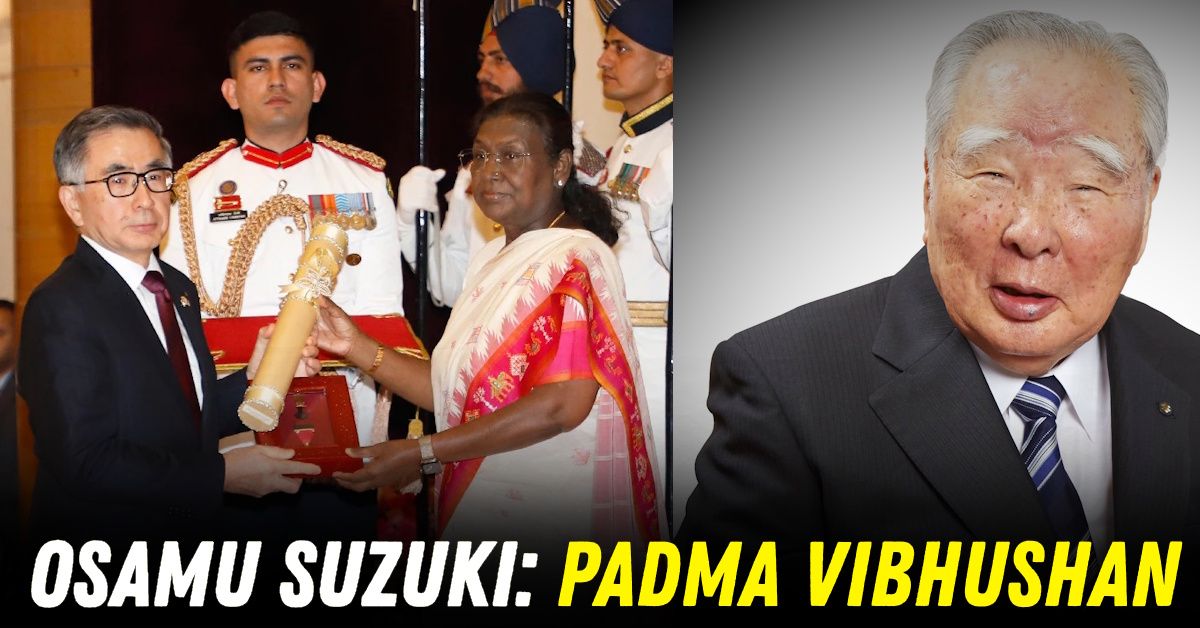Osamu Suzuki Honoured with Padma Vibhushan: The Man Who Changed How India Drives


When the news broke that Osamu Suzuki, the legendary former chairman of Suzuki Motor Corporation, had been posthumously awarded the Padma Vibhushan, it felt like a full-circle moment for a man who, in many ways, gave India its first real taste of personal mobility. The ceremony at Rashtrapati Bhawan in April 2025, where his son Toshihiro Suzuki accepted the award, wasn’t just a tribute to an individual but a recognition of a story that has touched millions of Indian families.
Osamu Suzuki’s journey with India began with a simple newspaper article in the early 1980s. The Indian government was searching for a partner to help build a “people’s car.” While many global automakers hesitated, Suzuki saw potential where others saw risk.
In 1982, he flew to Tokyo to meet Indian officials, and soon after, Suzuki Motor Corporation acquired a stake in the fledgling Maruti Udyog. What followed was the birth of the Maruti 800-a car that would become a rite of passage for a generation.
The Maruti 800 wasn’t just a car. For many, it was the first family vehicle, the first road trip, the first taste of independence. Waiting lists stretched for years, but the excitement never dimmed. Osamu Suzuki’s vision was clear: affordable, reliable, and efficient cars for ordinary people. He wasn’t just selling vehicles; he was selling aspiration and access.
Under Suzuki’s leadership, Maruti Suzuki started with a modest annual production capacity of 100,000 units in 1983. By 2024, the company was rolling out two million cars a year, with cumulative production crossing 30 million units. Maruti Suzuki’s share of the passenger vehicle market soared, and the brand became a household name, almost synonymous with the idea of owning a car.
What set Suzuki apart wasn’t just his business acumen but his relentless focus on cost efficiency and quality. He believed in lean operations-sometimes to an almost legendary degree. Stories abound of him switching off lights in empty rooms or suggesting holes in factory roofs to save electricity.
He demanded frugality not just from suppliers but from his own team, insisting that even something as small as a stapler should be shared. This obsession with keeping costs low meant that Maruti cars remained within reach for the average Indian family, even as competitors struggled to match the price and reliability.
Osamu Suzuki’s impact went far beyond just selling cars. He helped create a robust ecosystem-manufacturing plants, supplier networks, and skill development programmes-that transformed the automotive landscape.
Maruti Suzuki didn’t just make cars; it created jobs, trained workers, and set new standards in manufacturing. The company’s export numbers tell their own story: over three million vehicles shipped abroad, with Maruti Suzuki accounting for nearly 43% of the country’s passenger vehicle exports.
Suzuki’s relationship with India was deeply personal. He visited often, forging close ties with Indian colleagues and policymakers. Even in his later years, when health issues made travel difficult, he continued to guide the company, his commitment unwavering.
Osamu Suzuki passed away in December 2024 at the age of 94, but his influence remains everywhere-from the bustling city streets to the quiet towns where Maruti cars are a lifeline. The Padma Vibhushan is a fitting tribute to a man who didn’t just build cars but helped build dreams.
His story is a reminder that sometimes, real change begins with a simple idea and the courage to act on it. For millions, Osamu Suzuki will always be remembered as the man who put the nation on wheels-one Maruti at a time.